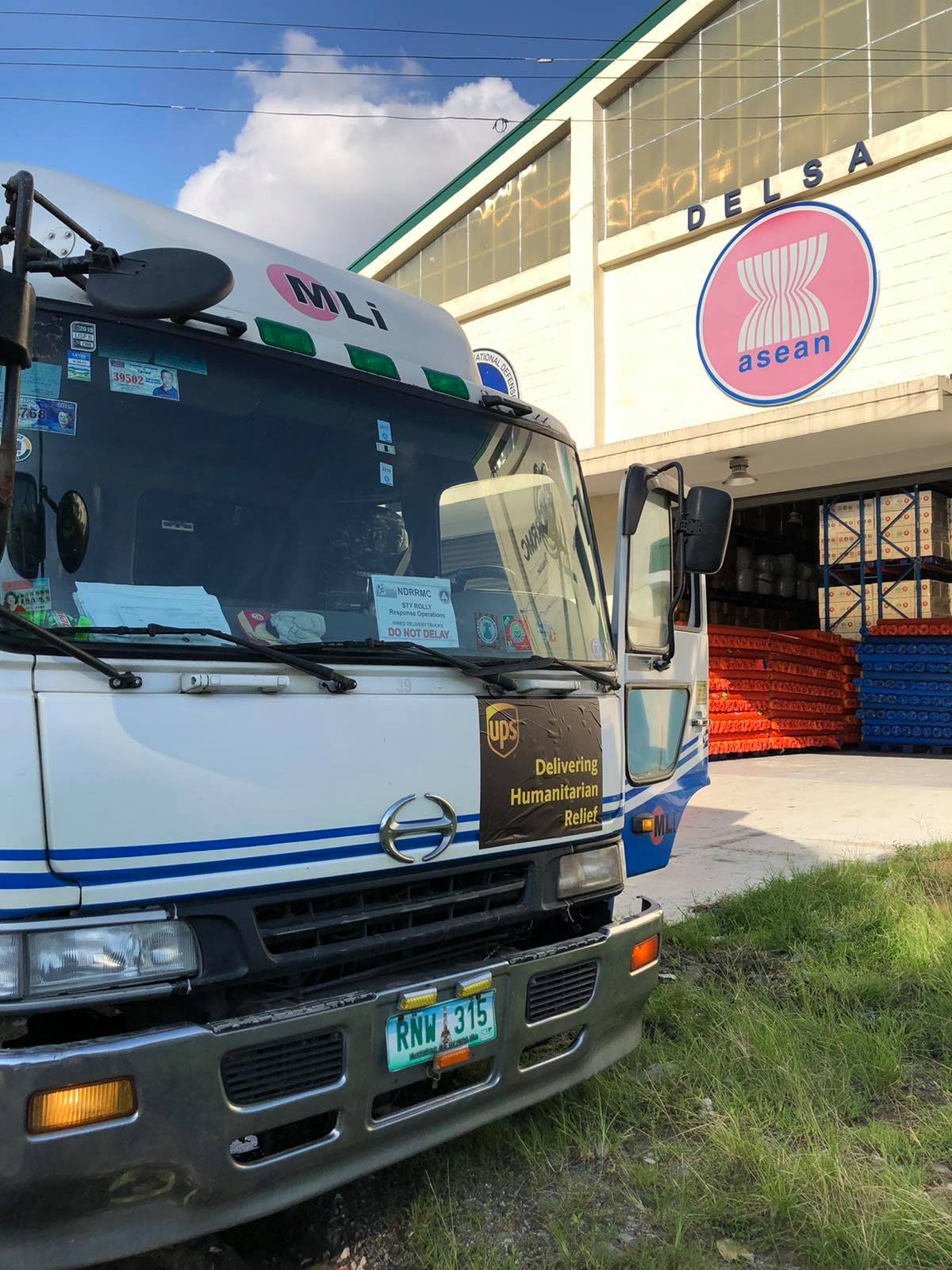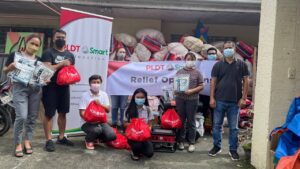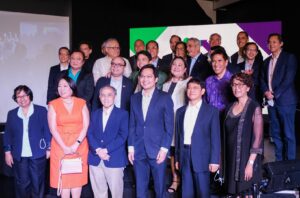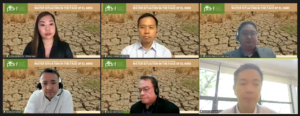JUNE 4, 2021, MANILA—Local and international logistics practitioners from various sectors shared the challenges and solutions to emergency logistics that impacted the humanitarian supply chain due to the COVID-19 pandemic in a recent international forum on emerging innovations in disaster risk reduction and management.
The Philippine Disaster Resilience Foundation (PDRF) co-organized a session with UPS Foundation at the ASEAN Coordinating Centre for Humanitarian Assistance on Disaster Management’s (AHA Centre) Humanitarian and Emergency Logistics Expo (HELIX) ASEAN Forum event last May 24. Titled “Logistics Beyond: Multi-sector engagements of the Private sector during the Pandemic,” this session brought together representatives from local and international private and public organizations to discuss how the pandemic is shaping disaster risk management practices especially in the logistics sector and how public-private partnerships can help improve response to complex emergencies.
The COVID-19 pandemic brought massive restrictions on transportation, affecting individual mobility, supply chain, and the delivery of essential needs. As the Philippines rolls out its vaccination program, some of the government’s biggest challenges are handling the incoming supply of the vaccines and efficiently distributing it to designated sites.
Philippine Logistics Cluster Plan
According to National Disaster Risk Reduction and Management Council – Office of Civil Defense (NDRRMC–OCD) Operations Office Director Rafaelito Alejandro IV, NDRRMC is currently in the final steps of institutionalizing the National Logistics Cluster Plan which will implement the strategies and protocols in humanitarian emergency logistics and supply chain.
The private sector will play a crucial role in the implementation of the cluster plan. PDRF has been appointed by NDRRMC-OCD as the point of contact to manage all the private sector logistics support in coordination with OCD.
In addition, the private sector will lead the repair and maintenance of private facilities, assist in information management, and ensure “seamless interlink and connectivity” with OCD’s emergency operations center.
Passenger Travel During the Pandemic
The tourism industry, which contributed a 12.7% share in the country’s Gross Domestic Product in 2019, experienced huge losses due to the pandemic. Local tourism and foreign arrivals fell by 80% and 84% respectively in 2020, resulting in cost-cutting that affected more than 5,000 airline workers.
AirAsia CEO Ricardo Isla said that as early as March 2020, AirAsia has been observing inflight health and safety protocols for passengers, helping in the repatriation of OFWs, and providing chartered flights. In coordination with PDRF, AirAsia mounted mercy flights to Cagayan and Catanduanes, which were heavily devastated by Typhoons Rolly and Ulysses last year.
To help in the recovery of the tourism sector, AirAsia supports the launch of travel bubbles in leisure domestic destinations including Bohol, Boracay, Puerto Princesa, Cebu, etc. Travel bubbles will be introduced once these pilot provinces reach a significantly low number of active COVID-19 cases. They are also targeting to launch travel bubbles in international destinations such as Taiwan, South Korea, and Mainland China.
AirAsia is also active in promoting and increasing air travel and tourism confidence using its online pages and mobile applications in business transactions. They will launch a digital travel pass wherein passengers’ health and vaccination status is indicated.
Emergency Medical Logistics
Zuellig Pharma also shifted to digitalization to ensure easier access to healthcare services. According to Zuellig Pharma Chief Business Officer Jannette Jakosalem, they used mobile and web-based platforms to book medical consultations and tests and enabled online purchasing of prescription medicines. They also supported the government in its COVID-19 response through the provision of testing laboratories and pharma-grade facilities and logistics services for COVID-19 vaccines.
PDRF has been working with Zuellig Pharma since the onset of the pandemic last year—through Project Kaagapay where the private sector provided PPEs and medical supplies to healthcare frontliners and ventilators to hospitals; and through Taskforce T3 in supporting the logistics of the vaccine rollout.
Supply Chain During the Pandemic
Micro, small, and medium enterprises (MSMEs) were among the most affected by the disrupted supply chain. UPS Philippines Managing Director Christopher Buono discussed how UPS supported PDRF’s COVID-19 response and business recovery initiatives.
UPS provided PHP 5 million worth of logistics support to PDRF during the Taal Volcano eruption, Super Typhoon Rolly, and the COVID-19 pandemic. Moreover, PDRF partnered with UPS in developing tools for MSME resilience including the Dimatinag comic book about business continuity and the Katatagan-in-a-Box mobile app—a localized version of UPS’ Resilience in a Box, which provides practical tips for enterprises to build their business continuity plans.
Towards the end of the session, PDRF and UPS leaders emphasized the urgency for continued collaboration and sharing of diverse expertise to build resilience beyond the pandemic.
“I’d like everyone to join us in helping prepare small businesses, in all our different countries, for any crisis, because it’s their incomes, their families, that are so important to our economies,” said PDRF President Butch Meily.
“We are a hybrid. We focus on humanitarian assistance in the time of pandemic and natural disaster but we also have one eye on business continuity because we take the long-term view that we need to build up the economic resilience of businesses,” PDRF Chief Resilience Officer Guillermo Luz said.
“Use the chance of transformation right now to build back better. One dollar spent on resilience is saving six to seven dollars in relief and recovery,” said UPS Foundation Director of International Programs Hans-Peter Teufer.
The Humanitarian and Emergency Logistics Innovation Expo (HELIX) is an initiative of the AHA Centre to capture the latest advancements and innovations in humanitarian logistics and supply chain management. It aims to provide ASEAN’s National Disaster Management Organisations a menu of solutions to address gaps in logistics capacities.
MSME Resilience tools mentioned above can be accessed through the SIKAP website: www.sikap.com.ph



